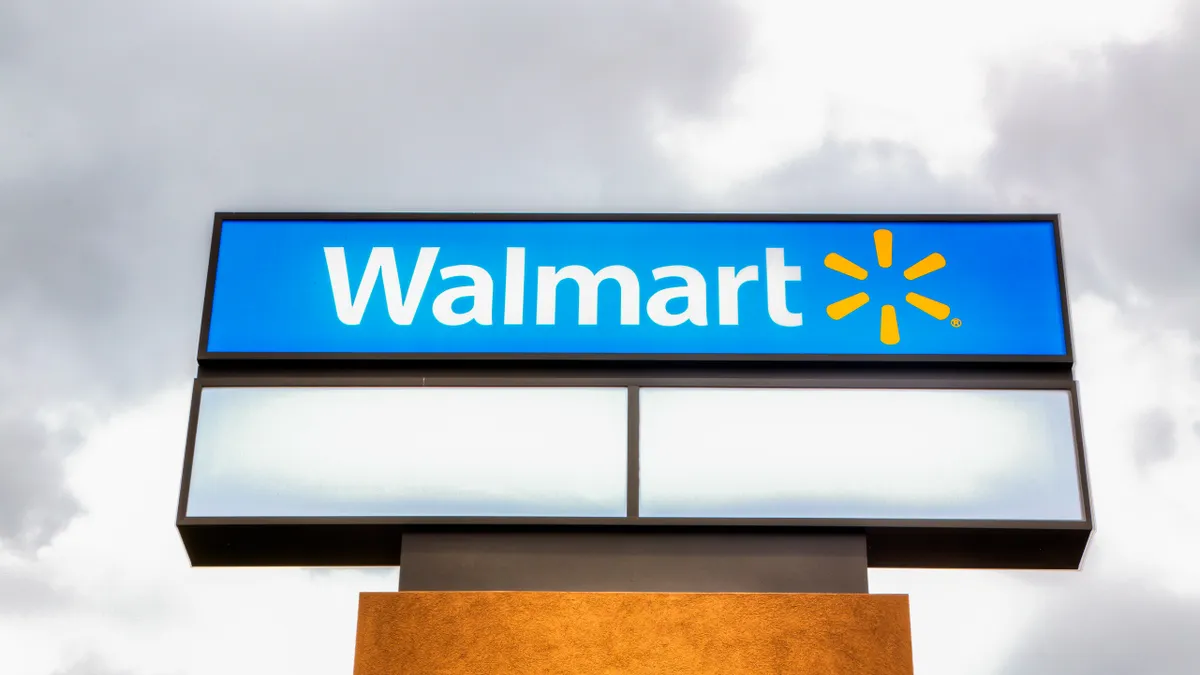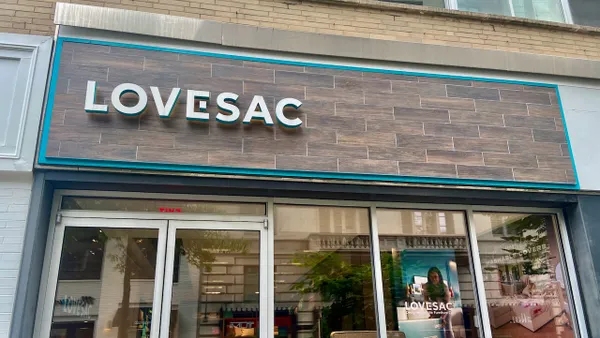Dive Brief:
-
Walmart is quietly raising its online prices for key consumer goods including boxed macaroni and cheese, toothbrushes and pet food, sources familiar with the policies told The Wall Street Journal.
-
The policy in general isn’t unheard of — it’s commonplace at Costco and elsewhere, the Journal notes — but it’s somewhat rare for Walmart, whose basic pitch to shoppers is "always low prices."
-
The retail giant earlier this year announced lower prices for online shoppers picking up orders in stores, and the Journal's report is a reflection of that new policy, according to a Walmart spokesperson. "We always work to offer the best price online relative to other sites," the spokesperson said in an email. "Our online prices are sometimes different than our stores prices – some items are priced lower and some are priced higher."
Dive Insight:
Walmart is one of the most efficient distributors of retail goods in the world — and founder Sam Walton’s promise to his customers has always centered around offering the lowest price. But the retail giant is also in the midst of a push into e-commerce, where efficiencies are harder to come by. "It simply costs less to sell some items in stores," a spokesperson told Retail Dive in an email. "Customers can access those store prices online when they choose to pick up the item in store through Pickup Today, if available for that item."
The costs are showing up in Walmart's bottom line. Gross margin rate in the second quarter for the U.S. segment declined 5 basis points, with price reductions and e-commerce costs more than off-setting new deals with vendors, Walmart CFO Brett Biggs told analysts in August. Analysts are increasingly leery of the margin trouble. Gordon Haskett analyst Chuck Grom said in a note emailed to Retail Dive that the company's latest quarterly report didn't quite deliver. "We think the comp/digital contribution needed to be a touch stronger (to be fair) to drive fresh money into the name," he said, though he also raised his share price estimates in light of Walmart's moat being "one of the strongest in retail."
Walmart's shoppers have historically been the most price sensitive of any in retail, according to Matt Sargent, senior vice president of retail for Frank N. Magid Associates. While in the past few months executives including new e-commerce chief Marc Lore (who founded the company's Jet unit), have positioned the company as being the answer to consumers' need for low prices and high convenience, these latest price adjustments are a sign that Walmart may be asking customers to choose between the two.
"Walmart is clearly trying to give shoppers an even more explicit trade-off: lower prices or more convenience," Keith Anderson, vice president of strategy and insights at retail intelligence firm Profitero, told Retail Dive in an email. "Ultimately, this does reinforce Walmart's stores as a lower-cost alternative to its own online business, which could help sustain (or even drive) traffic among the most price-sensitive Walmart shoppers."
While it appears that Walmart is working to finesse prices to protect margins, the company is otherwise demonstrating that it's on the offensive, according to a recent Profitero pricing study of identical products, in stock and in identical pack configurations. On average, Walmart's prices were just 3% higher than Amazon's across 13 categories; Walmart was priced lower than Amazon in beauty (the only category where it actually beat Amazon) and came close in sports and outdoors, and baby products, Profitero found. Amazon beat the daily online prices of Walmart, Target and Jet across 12 of 13 categories.
Walmart until last year had practically left its e-commerce operations to drift, and its recent push to address that represents what many analysts love to see in an era when Amazon dominates headlines. Presentations at Walmart's investors day earlier this year in Arkansas revealed a pivot away from its roots as a brick-and-mortar retailer with rock-bottom prices and a super-efficient supply chain. The company expects online sales to grow by 40% this year.
When it comes to stores, Walmart has scaled back brick-and-mortar growth the U.S. for the first time in some 15 years, opening 280 net new stores globally, with a focus on Mexico and China, executives said. In the U.S. that includes plans for 15 Supercenters and fewer than 10 of its smaller Neighborhood Markets stores.












